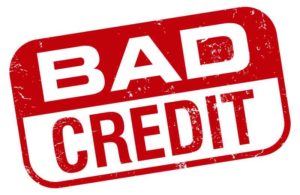Skip to content
Removing Collection Accounts from Your Credit Report
Home/Removing Collection Accounts from Your Credit Report
Removing Collection Accounts from Your Credit ReportDaniel Dobbs2022-12-17T08:00:04-08:00
 Many consumers & home buyers credit reports contain erroneous collection accounts which often derail transactions & cost agents commissions. The Consumer Finance Protection Bureau (CFPB) estimates 40% of all credit reports contain “factual errors”.
Many consumers & home buyers credit reports contain erroneous collection accounts which often derail transactions & cost agents commissions. The Consumer Finance Protection Bureau (CFPB) estimates 40% of all credit reports contain “factual errors”.
The most common collection accounts result from medical bills, mistaken identity, identity theft or are so old the client simply is unaware of the account.
In Calif.,the statute of limitations for unpaid balances is 4 yrs.
What often happens when the (debt) statute of limitations has expired, collection agencies employ a common tactic of “rolling debt forward”.
Here’s how it works:
A collection agency (after 4 years) sells the debt to another collection agency or transfers the debt internal division (with another name) to “re-frame” the debt as new & therefore still valid!
Depending on the age of debt, the impact on Fico scores can be as much as 30 points “per account per bureau” (Experian-Trans Union-Equifax).
When the consumer attempts to obtain a home loan, the debt must be settled (which can drive down the Fico scores even further) or deleted from the credit report, which is usually difficult as the close of escrow is looming.
Upon the consumer contacting the collection agency (and COE deadlines looming); they will access the consumer’s credit report and see the consumer is in the process of applying for a home loan.
Then the collection agency plays hardball & simply tries to bully the consumer into paying & it works most of the time.
But now consumers can fight back.
-
Once a file is assigned to any debt collector, whether it’s the first collection agency (or any subsequent collection agency) they are required to send a “validation notice” to the consumer within 5 days.
-
The Ninth Circuit concluded that if there are multiple debt collectors that try to collect a debt, each debt collector must send the required notice.
-
Another disclosure Section 1692 of the FDCPA is required within an additional other 5 days of the “initial communication”.
-
Debt collectors must send the consumer a subsequent notice containing specific disclosures outlined in 15 U.S.C. Section 1692g (a).
What is the “Validation Notice”?
Specifically, a “validation notice” of the FDCPA states:
Within 5 days after the initial communication with a consumer in connection with collection of any debt, a debt collector shall, send the consumer a written notice containing:
(1) The amount of the debt and the name of the creditor to whom the debt is owed.
(2) A statement informing the consumer they can dispute the debt within 30 days. On the 31st day after receipt of the notice, (if the consumer has not disputed the debt) the debt will be assumed to be valid by the debt collector.
(3) If the consumer notifies the debt collector in writing within the 30-day period, disputing the debt, or any portion thereof, the debt collector must obtain verification of the debt or a copy of a judgment against the consumer and a copy of such verification or judgment will be mailed to the consumer by the debt collector.
Before Hernandez v. Williams & Parham debt collectors simply stonewalled the consumer thereby forcing the consumer to pay the debt or abandon the home purchase.
Copywrite © August, 2018 Daniel Dobbs
All rights reserved. No part of this publication may be reproduced, distributed, or transmitted in any form or by any means, including photocopying, recording, or other electronic or mechanical methods, without the prior written permission of the publisher, except in the case of brief quotations embodied in critical reviews and certain other noncommercial uses permitted by copyright law. For permission requests, write to the publisher, addressed “Attention: Permissions Coordinator.
 Many consumers & home buyers credit reports contain erroneous collection accounts which often derail transactions & cost agents commissions. The Consumer Finance Protection Bureau (CFPB) estimates 40% of all credit reports contain “factual errors”.
Many consumers & home buyers credit reports contain erroneous collection accounts which often derail transactions & cost agents commissions. The Consumer Finance Protection Bureau (CFPB) estimates 40% of all credit reports contain “factual errors”.